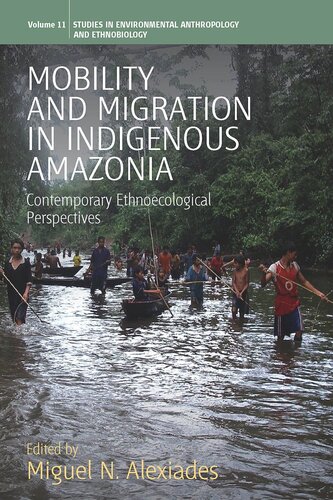

Most ebook files are in PDF format, so you can easily read them using various software such as Foxit Reader or directly on the Google Chrome browser.
Some ebook files are released by publishers in other formats such as .awz, .mobi, .epub, .fb2, etc. You may need to install specific software to read these formats on mobile/PC, such as Calibre.
Please read the tutorial at this link: https://ebookbell.com/faq
We offer FREE conversion to the popular formats you request; however, this may take some time. Therefore, right after payment, please email us, and we will try to provide the service as quickly as possible.
For some exceptional file formats or broken links (if any), please refrain from opening any disputes. Instead, email us first, and we will try to assist within a maximum of 6 hours.
EbookBell Team

4.8
84 reviewsContrary to ingrained academic and public assumptions, wherein indigenous lowland South American societies are viewed as the product of historical emplacement and spatial stasis, there is widespread evidence to suggest that migration and displacement have been the norm, and not the exception. This original and thought-provoking collection of case studies examines some of the ways in which migration, and the concomitant processes of ecological and social change, have shaped and continue to shape human-environment relations in Amazonia. Drawing on a wide range of historical time frames (from pre-conquest times to the present) and ethnographic contexts, different chapters examine the complex and important links between migration and the classification, management, and domestication of plants and landscapes, as well as the incorporation and transformation of environmental knowledge, practices, ideologies and identities.